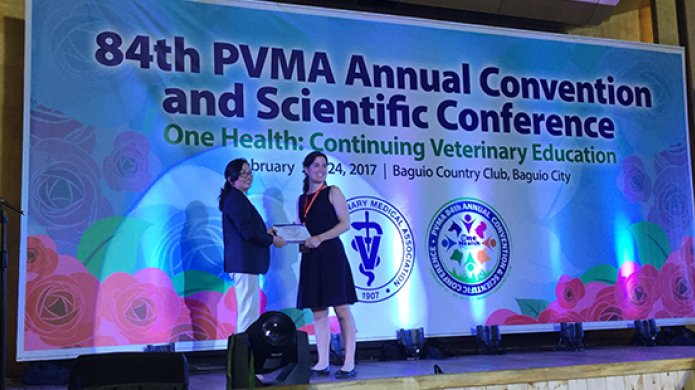The PVMA (Philippine Veterinary Medical Association) hosted the 84th edition of its Scientific Conference and Annual Convention Venue in Baguio (Philippines) from the 21th-24th February, a prestigious event that gathered 2,300 veterinarians from all over the country.
Without any doubt, the “One Health approach” was the key point of the show as well as the different ways and possibilities for veterinarians to get towards a more responsible use of antibiotic in animal production.
In this context, Olmix took the lead and went on stage represented by Dr Marine Josso, who delivered two dynamic and innovative presentations on that matter. First, Dr Josso focused her speech on how algae can help to improve the immune transfer from the sow to the piglets:
“Even if piglets are born with a functioning immune system, this one is not strong enough to provide them a proper protection in their environment. Moreover, the epiteliochorial placentation in swine prevents antibodies to be transferred to the piglets during the gestation. Therefore, ensuring a good passive transfer of colostral immunoglobulins is a key factor in piglets’ survivability. In this context, the optimization of immune transfer thanks to the MSPImmunity helps to give piglets a good start in their early stages.” she explained.

Scientific Conference and Annual Convention Venue in Baguio
